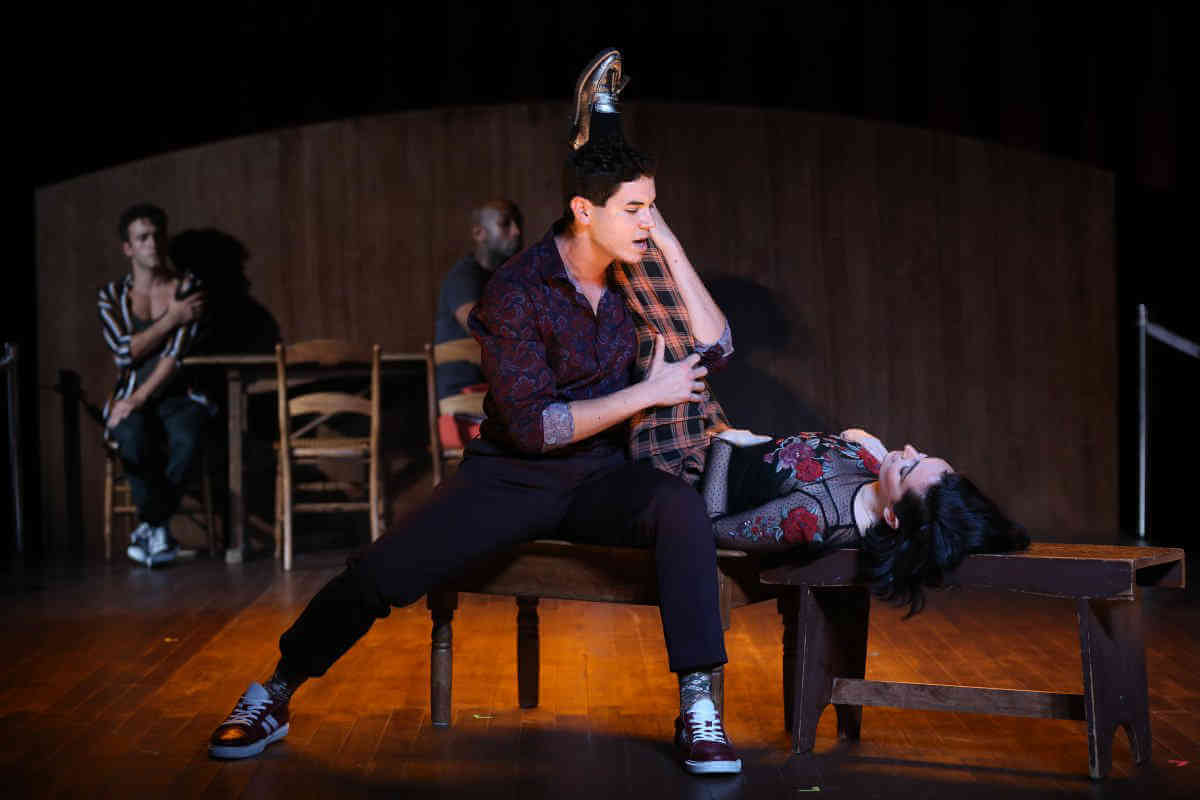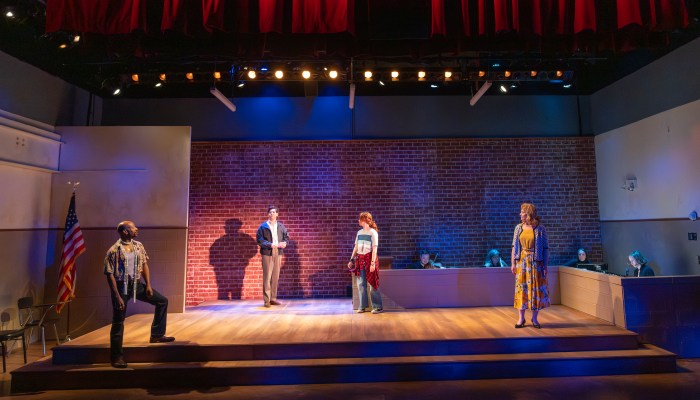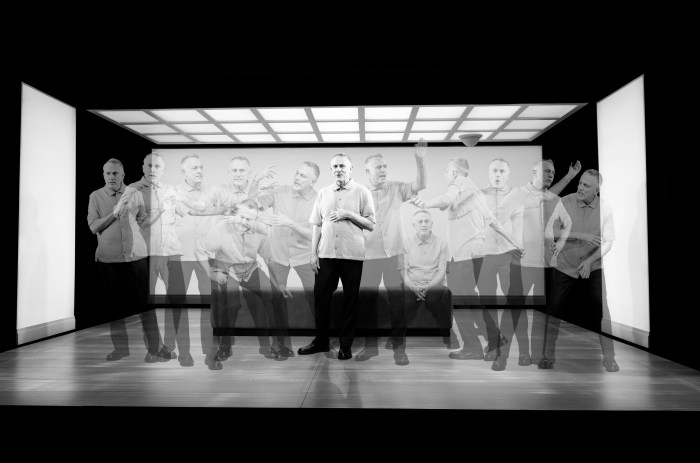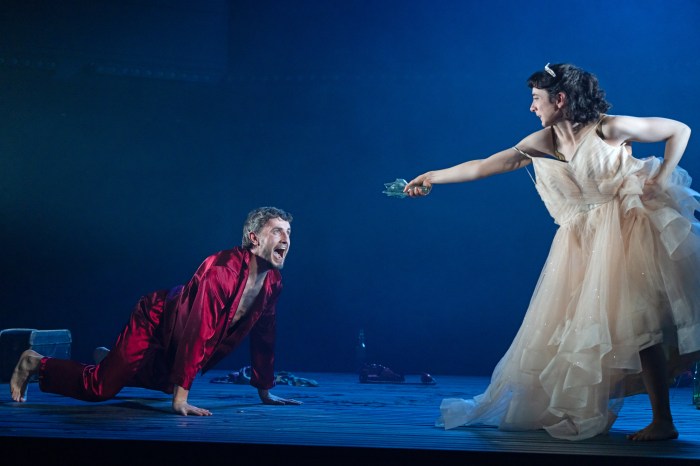Edna St. Vincent Millay wasn’t just a poet, she was a culture-shifting rock star. Not only did she win the Pulitzer for poetry in 1923, but at the height of her fame toured America and filled top-notch venues like the Hollywood Bowl. Rabid crowds adored her. You might say she was the Katy Perry of her day.
So it’s hardly a stretch that her exuberant, profound poems should be set to music. Which is exactly what the Transport Group has done in its gutsy, exhilarating new show, “Renascence,” named for the epic lyric poem that landed Millay squarely on the literary map forever. She wrote it in 1912 when she was a mere 19, impoverished and living in Camden, Maine.
Directed by Jack Cummings III and Dick Scanlan (who also wrote the book), “Renascence” is infinitely more than a bio-drama with music. It’s also a theatrical exploration of identity and artistry, with a genre-busting structure as bold and expansive as Millay’s poetry itself. To its credit, the piece defies easy description.
Six highly skilled actors portray the poet (Hannah Corneau) and central characters in her orbit: her devoted mother (Katie Thompson), deadbeat father (Donald Webber, Jr.), supportive sisters (Mikaela Bennett and Danny Harris Kornfeld), and amorous editor (Jason Gotay). Yet they also play a raft of supporting roles such as her benefactor, her publisher, competing poets, and various lovers, male and female. All the while expertly belting out songs with lyrics based on Millay’s poems and letters. Carmel Dean composed the lush, mellifluous score.
Underscoring how the red-haired poet challenged gender norms — in addition to being defiantly bisexual, she was known as “Vincent” to family and friends, and often wore mannish attire — the script calls for a male to play Millay’s youngest sister Kathleen, and her female benefactor. Without wigs or dresses, Kornfeld embodies both roles with sensitivity and flair.
If it’s not always clear who’s singing what, well, that’s the point. Its ethereal mood, and the humanity, they’re most after here, and they succeed brilliantly.
Scanlan’s script is infused with flashes of contemporary, anachronistic wit, as are the period-agnostic costumes, designed by Ásta Bennie Hostetter. All in service of making the work more otherworldly, yet accessible.
“Renascence” artfully captures key moments in Millay’s early career. Desperate for the $1,000 first-place cash prize, she enters a contest sponsored by a pioneering New York publisher (full disclosure: the publisher is Mitchell Kennerley, who happens to be my grandfather). Of some 10,000 entries, the top 100 will be published in a volume titled “The Lyric Year”; her magnificent metaphysical poem about rebirth makes the cut.
Millay exchanges steamy love letters with the book’s editor (presumably Ferdinand Earle, not named in the piece). She is shown having illicit trysts with Kennerley, one of many such dicey affairs she enjoyed without shame.
Drama develops surrounding whether the cocky poet will actually snag the grand prize. When she enters Vassar College, sponsored by wealthy arts patron Caroline B. Dow, friction develops when Millay spends more time cavorting with her classmate, Elaine Ralli, than honing her craft.
Millay’s poetry, with its formal rhyming couplets about the vagaries of modern life and love, shimmers with a sense of yearning, rebellion, and sacrifice, all from a brash, female perspective. She introduced evocative phrases like “burning a candle at both ends” and “what lips my lips have kissed” into the English lexicon.
This musical stage adaptation isn’t just a reverent tribute to a sensual landmark poem written over a century ago. It renders Millay’s poetry fresh and relevant for a new generation. In effect, its own kind of renascence.
RENASCENCE | Transport Group | Abrons Arts Center, 466 Grand St. at Pitt St. | Through Nov. 17: Tue.-Sat. at 7:30 p.m.; Sun. at 3 p.m. | $60-$80 at transportgroup.org | Two hrs., 30 mins., with intermission



































